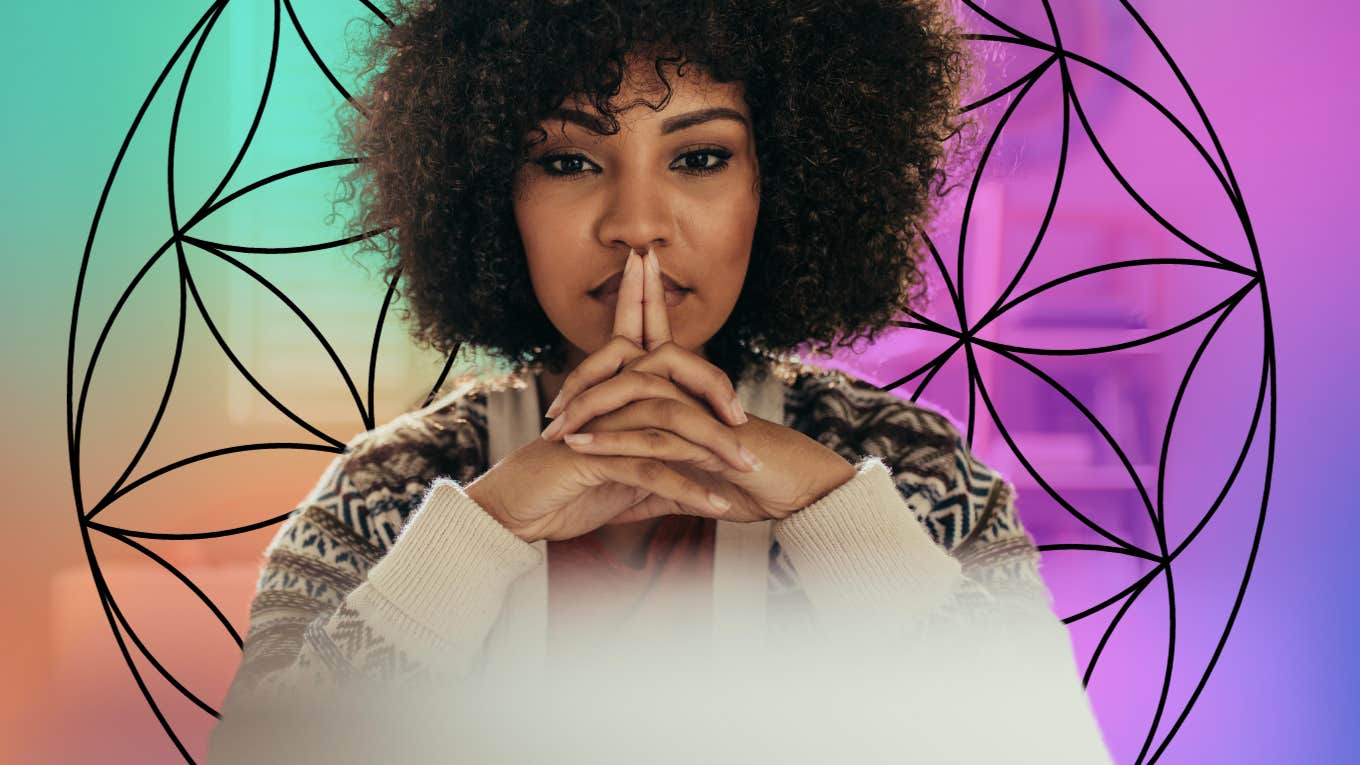Answer These 4 Questions To Transform Your Reality This Year
If we want to change our reality, we have to change how we think on an unconscious level.
 Jacob Lund
Jacob Lund Our unconscious mind can make or break our reality. When our unconscious mind is in a constant state of negativity, our reality may look more meek and feel unbearable.
And since our unconscious mind deals with our feelings, thoughts, urges, and memories, it inevitably deals with other related issues such as pain, anxiety, and conflict.
So, how can you transform your unconscious mind to reflect a better reality this year?
Life and business coach Flynn Skidmore creates content intended to help motivate and cultivate better relationships and purpose. In an Instagram post, he shares four questions to ask yourself to completely transform your unconscious mind for a better reality in 2024.
4 Questions To Ask Yourself To Transform Your Unconscious
1. What specifically do I want?
Skidmore writes, “This question is about overcoming your fears of declaring your desires and setting clear, specific goals,” which makes sense! If you don’t even know what you want, how can you honestly expect to get what you desire?
By asking yourself this question, you are exploring the best, most logical way to get there.
This line of thought is the starting point for transforming your unconscious mind.
2. How will I know when I have achieved it?
Okay, but how do you know that you’ve truly accomplished what you want? For instance, if your goal was to heal, how do you truly know that you’ve truly healed? And what does true change even look and feel like?
As you begin to question, you’ll begin to seek tangible things within your life that will let you know if you’ve truly achieved your goals.
If you’ve set goals, likely, you are already on the path to success!
According to certified psychiatric counselor Madhuleena Roy Chowdhury, “Setting goals is linked with higher motivation, self-esteem, self-confidence, and autonomy.”
In addition, research has shown a strong correlation between success and goal setting. So, congrats! You’re probably already on the best track to achieving what you truly desire (or you are already there).
3. What resources do I have, and what do I need?
Skidmore asks us, “What skills knowledge, and support systems are already in place, and what additional resources do you need to achieve your goals?” For instance, if your goal is to get fit, what resources do you already have? Does your neighborhood have a community gym or walkable area?
By identifying these resources, you have a better idea of what you need.
Do you need proper running shoes or workout clothes? Do you need protein powder or bands to enhance your workout? Or do you perhaps need a professional coach so you can better meet your fitness goals?
All of these questions can help organize your thoughts and better help you reach your milestones. As Yale University puts it, "Planning and organizing are the foundations to reaching your goals!”
4. What is preventing me from having this now?
The most difficult question to ask yourself is, “What prevents me from achieving my goals?” And this question can be hard for a multitude of reasons.
It makes you focus on both the internal and external barriers you must change. To be blunt, it forces you to think about what’s currently in the way of your goals.
Is it friends or family that hold you back, or is it your negative thoughts that pull you away? Or is it a combination of the two that keeps you from succeeding? Once you know what’s in your way, you can come up with a plan to overcome your obstacles.
If you’re struggling with the execution of your solution, life coach Bachir Bastien has some tips on avoiding being a victim of our successes.
He writes, “A fulfilling, rich, and successful life happens when we take actions today that align with the future, which is the realm of our heart’s most cherished dreams.”
So, as hard as it may be, cutting out negativity or toxic people in your life may be the best thing you do to achieve your goals!
Ways our unconscious minds are both powerful and influential, according to John A. Bargh and Ezequiel Morsella of Yale University, include the following:
- There is substantial evidence to suggest that the unconscious mind is flexible and complex.
- The unconscious mind has many independent behaviors that operate without conscious awareness.
- The unconscious mind is involved in guiding behavior before conscious thought comes into play.
- The unconscious mind is influenced by genes, culture, and early learning. Therefore, important things such as goals, social behavior, preferences, and even feelings, are influenced by the unconscious mind and help us respond effectively to our environment.
By working on our unconscious mind, we can learn to both embrace and unlock our fullest potential!
Marielisa Reyes is a writer with a bachelor's degree in psychology who covers self-help, relationships, career, and family topics.

